Newsletter 14 Jun 2021
Environment: What’s Up in GENeva | 14 – 20 June 2021

The Geneva Environment Network’s weekly newsletter includes the latest information on the global environmental agenda, main events, job vacancies, learning opportunities, as well as other useful resources and updates. During the COVID-19 pandemic, some live events organized by organizations around the world, contributing to the global environmental agenda, have also been included. Stay tuned and follow us also on Twitter, Facebook, LinkedIn, Youtube, or visit our website regularly for additional updates.
Due to the developments in the sanitary situation, various institutions in Geneva continue operating virtually. Our update on COVID-19 and the environment lists relevant information, research, data, and press releases on the environmental origins and impacts of the pandemic.
Celebrating World Day to Combat Desertification and Drought
The 2021 Desertification and Drought Day to be held on 17 June will focus on turning degraded land into healthy land. Restoring degraded land brings economic resilience, creates jobs, raises incomes and increases food security. It helps biodiversity to recover. It locks away the atmospheric carbon warming the Earth, slowing climate change. As we enter the UN Decade of Ecosystem Restoration, it can also lessen the impacts of climate change and underpin a green recovery from the COVID-19 pandemic.
To celebrate the day:
- The UN General Assembly will host a High-level dialogue on desertification, land degradation and drought on 14 June from 16:00 CEST.
- The UN Regional Information Centre for Western Europe is hosting an online screening of “The Great Green Wall” on 15 June, presenting how this project is providing a future for over 60 million people in the region. Various Geneva-based actors are also involved in the Bonn Challenge, the Great Green Wall, and other initiatives to combat desertification.
- The UN Convention to Combat Desertification will host the global celebrations on 17 June, from 9.00-15.00 CEST.
- The UN Office for Disaster Risk Reduction will launch of the GAR Special Report on Drought 2021 on 17 June, at 15:00 CEST.
Tout ce que vous avez toujours voulu savoir sur la Convention sur l’eau de 1992
Rejoignez-nous jeudi 17 juin, pour le lancement de la publication Questions fréquemment posées sur la Convention sur l’eau de 1992, en français. Cet événement, co-organisé par le Geneva Environment Network et la CEE-ONU, a pour but de sensibiliser le public à la Convention sur l’eau et les avantages qu’elle offre dans le contexte de son ouverture à tous les États membres de l’ONU depuis 2016. La publication, préparée avec le soutien financier de l’Union Européenne, vise à améliorer la compréhension de la Convention, à faciliter et éclairer le processus décisionnel concernant l’adhésion, et à contribuer à l’application effective de la Convention ainsi qu’au renforcement de la coopération dans le domaine des eaux transfrontalières à travers le monde. Inscrivez-vous et rejoignez-nous dès 15.00 CEST.
Trade, Environment, the SDGs & Plastic
The Graduate Institute and the United Nations Environment Programme announced last week the launch of the Forum on Trade, Environment & the SDGs (TESS). This new partnership core mission is to promote multilateral dialogue and action on trade policies that address urgent global environmental crises and advance progress on the UN Sustainable Development Goals. It aims to catalyze policy action across the trade, environment, and sustainable development communities through a versatile, needs-driven, and outcome-focused toolbox of activities. In 2021, a core focus of TESS is to support informed, action-oriented dialogue on trade and sustainability in the lead-up to the WTO’s 12th Ministerial Conference on the pressing topics of climate, plastic pollution, and sustainable agriculture, among others.
On 17 June, TESS is hosting with the Global Governance Centre at the Graduate Institute, UNCTAD, the Geneva Environment Network, the UNEP Environment and Trade hub and the Geneva Trade Platform, the launch of the publication How can international trade policy help tackle plastic pollution? by Carolyn Deere Birkbeck and Mahesh Sugathan. Register and join us at 14.00 CEST.
Fostering a Green Recovery
As countries struggle to recover from COVID-19 and the collateral impacts of the Great Lockdown, the international community offers platforms to discuss tools to support and foster a fair and green recovery. Read latest insights in Recovering from COVID-19: If it isn’t fair and green, it won’t be sustainable by Steven Stone, Chief of UNEP Resources and Markets Branch. On the agenda this week:
- The UN Trade Forum 2021 will convene under the theme Towards a Green and Inclusive Recovery on 14 – 15 June, as a key stepping stone towards UNCTAD15 in October 2021. The forum will explore the critical role that trade and trade policy play in this process.
- The UN Environment Management Group is hosting the webinar Regional Nexus Approaches to Building Back Better on 15 June, in close collaboration with UNEP, UNEP-FI, UNESCAP, UNECE, UNECA, ECLAC, ESCWA, and RCNYO. This dialogue, which is part of a series on addressing COVID-19 for the environment, will present case studies on “Regional Acceleration of Climate Action and Decarbonization” and exchanges surrounding nexus thinking and integrated policy-making tools.
- On 16 June, UN PAGE will be releasing the latest episode of The Green Renaissance: “Are We Building Back Better?”. It will explore some of the main findings from UNEP and Oxford University’s Are We Building Back Better report, launched in March, featuring an open discussion between Steven Stone (UNEP), Brian O’Callaghan (Oxford University), Jean-Paul Adam (UNECA) and Katja Funke (IMF).
Post-2020 Biodiversity Framework
After a year’s delay due to the global COVID-19 pandemic, the 24th meeting of the Subsidiary Body on Scientific, Technical and Technological Advice (SBSTTA-24) and the 3rd session of the Subsidiary Body on Implementation (SBI-3) of the Convention on Biological Diversity convened to advance the preparations for the fifteenth meeting of the Conference of the Parties (COP15), currently scheduled to take place in October 2021 in Kunming, China. The subsidiary bodies concluded virtual deliberations, and adoption of final draft decision documents were deferred until SBSTTA-24 and SBI-3 can resume in person.
The Parties to the Convention on Biological Diversity have been negotiating at these meetings a new Global Biodiversity Framework, which will define targets and pathways for the conservation and management of biodiversity for the next decade and beyond. The next Geneva Nature-based Solutions Dialogue, on 28 June, will focus on the post-2020 Global Biodiversity Framework, to be adopted at COP15, as a stepping-stone to achieve the 2050 Vision of “Living in Harmony with Nature”.
What (Else) Should I Read Next?
- IPBES-IPCC Co-Sponsored Workshop Report on Biodiversity and Climate Change | IPBES & IPCC | 10 June 2021
In a first-ever collaboration, IPCC and IPBES published a report revealing that previous policies have largely tackled biodiversity loss and climate change separately and that addressing the synergies between mitigating biodiversity loss and climate change, while considering their social impacts, offers the opportunity to maximize benefits and meet global development goals. - Blueprint for a Living Planet: Four Principles for Integrated Ocean-Climate Strategies | WWF International | 8 June 2021
Issued on World Ocean Day, this publication offers four principles to guide integrated ocean and climate action to strengthen the mitigation, adaptation and resilience potential of marine and coastal ecosystems – and everything and everyone that depends on them. - Briefing to the Security Council on Yemen | UNEP | 3 June 2021
UNEP Executive Director Inger Andersen warned the Security Council about the risk of a massive oil leak from the FSO Safer – a floating single-hull storage and offloading unit – on the coast of #Yemen, which poses a grave threat to the environment and to the livelihoods of millions of people. - Global treaty to regulate plastic pollution gains momentum | National Geographic | 8 June 2021
At least 100 nations have already expressed support for a plastic treaty, and those involved in preliminary talks are optimistic that one could be approved at a pace that could make a difference. Even producers have an interest in global rules on plastic waste that would resolve the inconsistencies among countries. - Plastic on the Peak | GRID-Arendal, UNEP, BRS, MRI | 4 June 2021
A new global survey finds that hard and soft plastics are the most common types of waste encountered at altitude by mountaineers, with two thirds of mountaineers spotting litter most or every time they set foot on a mountain. The survey reveals that waste is a pervasive issue affecting mountain regions across all continents. - Mapping the Landscape for a Nature Economy | IISD & MAVA Foundation | June 2021
Recent years have seen the emergence of innovative financial transaction mechanisms designed to help reverse the alarming trends in biodiversity loss. If implemented at scale, these mechanisms could help to kickstart a nature economy, where financial flows would take account of the natural laws and boundaries of our planet. - Beyond Opportunism: The UN Development System’s Response to the Triple Planetary Crisis | United Nations University | June 2021
UNU-CPR and UNU-INRA were commissioned to supply this analysis and engaged with Resident Coordinators and UN experts to solicit best practices and document the constraints experienced by Resident Coordinators on the ground specifically in relation to the Triple Planetary Crisis.
- Chile: Nearly 40 years on, still no remedy for victims of Swedish toxic waste – UN Experts & Special Rapporteurs | HRC Special Procedures | 7 June 2021
UN human rights experts are deeply concerned by the continuous devastating impact on a local community of a dumping of toxic waste by a Swedish company in the northern Chilean city of Arica nearly 40 years ago. - Nature-based Solutions and Ecosystems Restoration | GEN & IUCN | 7 June 2021
Outcomes of the session Geneva Nature-based Solutions Dialogues on ecosystems restoration. - G7 Final Statement | Our Shared Agenda for Global Action to Build Back Better | G7 | 13 June 2021
The leaders of the Group of Seven, met in Cornwall on11-13 June 2021 determined to beat COVID-19, build back better, and protect the planet.
Events
See all

Body Meeting
Informal Open-ended Negotiating Group on Rules | Fisheries Subsidies
14 – 16 Jun 2021
Online & WTO CR/S1
WTO

Body Meeting
2nd meeting of the Basel Convention Plastic Waste Partnership working group
14 – 16 Jun 2021
Online
BRS
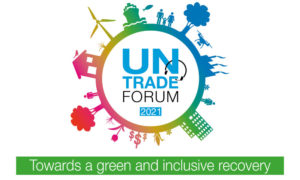
Conference
UN Trade Forum 2021 | Towards a Green and Inclusive Recovery
14 – 15 Jun 2021
Palais des Nations & Online
UNCTAD

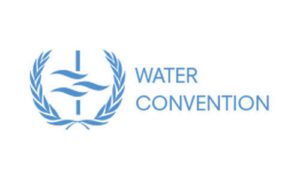
Body Meeting
21st meeting of the Compliance Committee under the Protocol on Water and Health
15 – 16 Jun 2021
Geneva
Water Convention
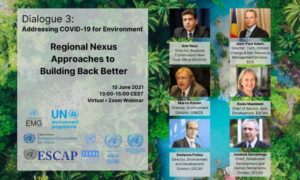
Virtual
Regional Nexus Approaches to Building Back Better
15 Jun 2021 13:00 – 15:00
Online | Zoom
UN EMG

Virtual
Environment, climate, conflict, and peacebuilding (ECCP) Monthly Meeting
15 Jun 2021 14:00
Online
Geneva Peacebuilding Platform

Virtual
Web-based Training on Field and Office Operations under COVID-19
15 Jun 2021 15:00 – 17:00
Online
UNEP Disasters and Conflicts Branch

Body Meeting
Meeting of the Bureau of the Espoo Convention
16 – 17 Jun 2021
Geneva & Online
EIA Convention

Virtual
Reporting on the production and use of DDT under the Stockholm Convention: Questionnaire 2021
16 Jun 2021 11:00 – 13:00
Online | Webex
BRS

Virtual
Clean Cooking Webinar: New SDG7 Clean Cooking Data and Pathways to Achieving Progress
16 Jun 2021 14:30 – 16:00
Online
WHO

Conference
«Les arbres genevois» par Caroline Paquet-Vannier, Pascal Martin et Benjamin Guinaudeau
16 Jun 2021 18:00 – 19:30
Villa Dutoit
City of Geneva
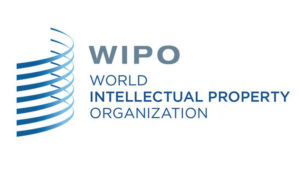
Virtual
Intellectual Property Management Clinic | Green Technology
17 – 18 Jun 2021
Online | Webex
WIPO
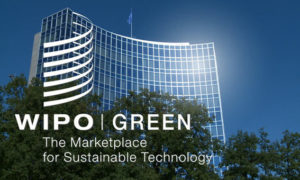

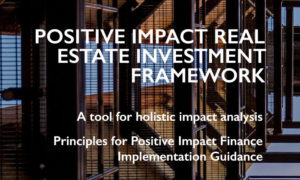
Virtual
Launch | UNEP FI Real Estate Impact Analysis Tool
17 Jun 2021 09:00 – 10:30
Online | BrightTALK
UNEP FI

Virtual
International Experience on Energy Subsidy Reforms: How can Indonesia lead the way?
17 Jun 2021 09:00
Online | Zoom
IISD

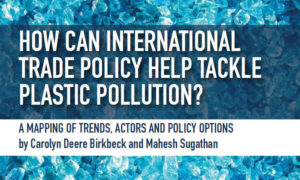
Virtual
How Can International Trade Policy Help Tackle Plastic Pollution? | Publication Launch
17 Jun 2021 14:00 – 15:15
Online
TESS

Virtual
Lancement de la publication “Questions fréquemment posées sur la Convention sur l’eau de 1992”
17 Jun 2021 15:00 – 17:00
Online | Webex
Water Convention
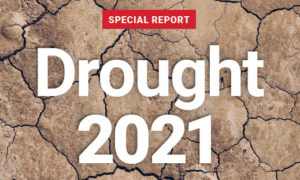
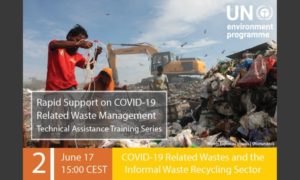
Virtual
COVID-19 Related Wastes and the Informal Waste Recycling Sector
17 Jun 2021 15:00 – 16:30
Online
UNEP Disasters and Conflicts Branch
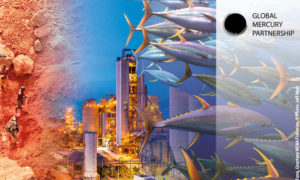
Virtual
Integrating Gender Dimensions into National Action Plans for Artisanal and Small-scale Gold Mining
17 Jun 2021 15:00 – 16:30
Online | Webex
UNEP Chemicals and Health Branch

Jobs
See all


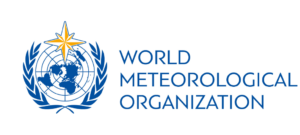
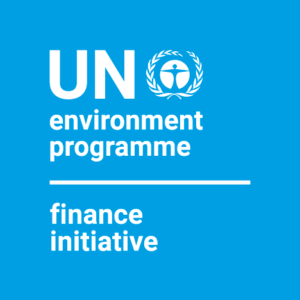


Professional
Assistant-e HES dans le domaine du climat urbain et des géodonnées, à 60%
15 Jun 2021
HEPIA
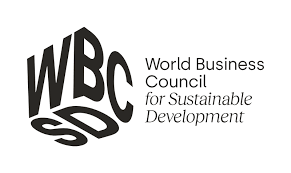

Professional
Associate Programme Officer | Disaster Risk Reduction and Public Services
16 Jun 2021
WMO




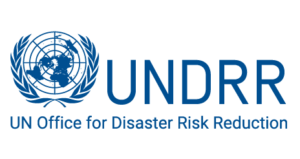




Learning
See all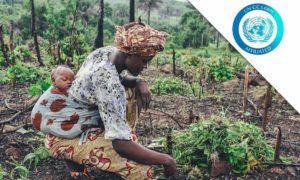

Updates
See all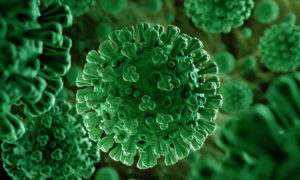
08 Apr 2023
COVID-19 and the Environment
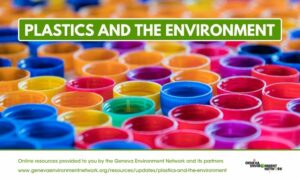
18 Apr 2024
Plastics and the Environment

17 Apr 2024
